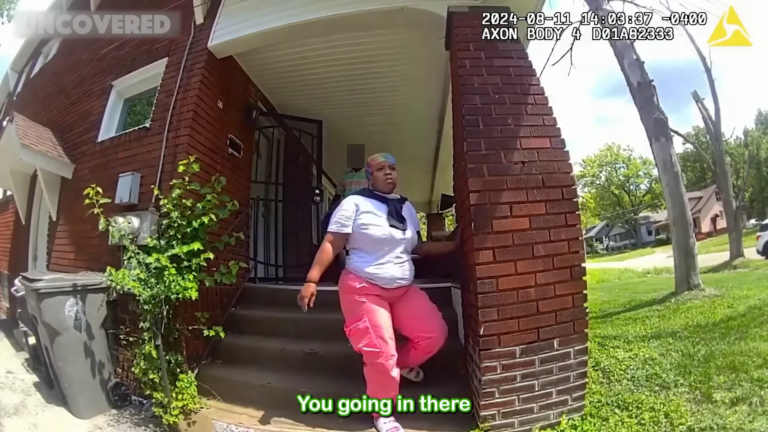
Facing non-paying tenants can be a nightmare for landlords, threatening both financial stability and peace of mind. This comprehensive blog will guide you through the legal eviction process, successful case studies, and essential strategies to reclaim your property effectively.
Table of Contents
Legal Eviction Process for Non-Payment
The legal eviction process can seem overwhelming, especially when dealing with non-paying tenants. Understanding each step is crucial to ensure you follow the law accurately and protect your property rights. The process typically begins with a thorough understanding of tenant laws and the specific legal requirements in your jurisdiction.

Photo by Tingey Injury Law Firm on Unsplash
First and foremost, familiarize yourself with the laws that govern landlord-tenant relationships in your area. Each state has its own regulations regarding eviction, and being informed will help you navigate the complexities of the legal system. Ignoring these laws can lead to costly mistakes and prolonged disputes.

Photo by Erik Mclean on Unsplash
Document everything. Keep track of all interactions with your tenant, including missed payments, communications, and any notices you send. This documentation will serve as crucial evidence should you need to take legal action.

Photo by Trnava University on Unsplash
Understanding Tenant Laws
Tenant laws are designed to protect both landlords and tenants. However, they often favor the tenant, making it essential for landlords to understand these protections. Familiarize yourself with local eviction laws, notice requirements, and allowable reasons for eviction.

Photo by Sebastian Bill on Unsplash
For instance, many jurisdictions require a valid reason for eviction, such as non-payment of rent or lease violations. If you do not have a legitimate reason, you may face legal repercussions. Knowing your rights and obligations will empower you to act decisively.

Photo by Erik Mclean on Unsplash
Additionally, be aware of any recent changes in legislation that may affect your situation. Stay updated to ensure compliance and avoid pitfalls that may arise from outdated knowledge.
Effective Communication with Tenants
Clear and effective communication with your tenant is vital. If you notice a missed payment, reach out immediately. Sometimes, tenants may face temporary financial challenges and may be willing to discuss a payment plan.

Photo by Pavan Trikutam on Unsplash
Always document your communications. Whether through email, text, or written letters, keep records of every interaction. This will protect you legally should the situation escalate to eviction.

Photo by Jason Rosewell on Unsplash
Be firm yet professional. Express the urgency of the situation while maintaining a respectful tone. This approach can aid in reaching a resolution without resorting to legal action.
Reviewing Your Lease Agreement
Your lease agreement is a critical document that outlines the rights and responsibilities of both parties. Review it carefully to ensure you understand the terms related to payment, eviction, and any specific clauses that may apply to your situation.
Photo by The HK Photo Company on Unsplash
Check for clauses that allow for eviction due to non-payment. Ensure that you are following the correct procedures as outlined in the lease. If your lease agreement has specific requirements for notices or communication, adhere to them strictly.

Photo by Cytonn Photography on Unsplash
Consulting with a legal professional about your lease can provide clarity and help you avoid mistakes that could jeopardize your case.
Pay or Quit Notice Requirements
Most states require landlords to issue a “pay or quit” notice before proceeding with eviction. This notice informs the tenant of their overdue rent and provides a specific timeframe—usually between three to five days—to either pay or vacate the property.

Photo by Yuri Krupenin on Unsplash
Ensure that the notice is delivered correctly, either in person or via certified mail, to provide proof of delivery. Mistakes in the notice, such as incorrect details or insufficient notice time, can delay the eviction process.
Double-check that your notice complies with state-specific regulations. Consulting with a legal professional can help ensure that you meet all necessary requirements.
Filing for Eviction
If the tenant fails to respond to the pay or quit notice, the next step is to file for eviction at your local court. Be prepared for the paperwork and associated filing fees. The process can vary significantly by state, so it’s crucial to consult your local housing authority for specific guidelines.

Photo by National Cancer Institute on Unsplash
Once your case is filed, a court date will be set. Both you and your tenant will have the opportunity to present your cases. Prepare thoroughly: gather all relevant documentation, including the lease agreement, payment records, and copies of communications.

Photo by Julian Ebert on Unsplash
Having a strong case is essential, especially if the tenant has legal representation. If you find yourself facing a tenant’s lawyer, consider consulting with a legal professional to strategize your approach.
Court Proceedings and Documentation
Once the eviction process reaches the court stage, it is imperative to be prepared. The court proceedings can be intimidating, but understanding the process can significantly enhance your chances of a favorable outcome. Documentation is key; it serves as the backbone of your case.

Photo by CHUTTERSNAP on Unsplash
Collect all relevant documents, including the lease agreement, payment records, and any communication you’ve had with the tenant. Ensure that every piece of correspondence is timestamped and organized. This attention to detail will help you present a coherent and compelling case in court.

Photo by Tim van der Kuip on Unsplash
During the hearing, both you and your tenant will have the opportunity to present your evidence. Be concise and stick to the facts. The judge will look for clarity and legitimacy in your claims, so ensure that your documentation supports your narrative.

Photo by Kit (formerly ConvertKit) on Unsplash
Understanding court procedures is crucial. Familiarize yourself with the courtroom etiquette, and be prepared for questions from the judge. Your demeanor and preparedness can significantly influence the court’s perception of your case.

Photo by Dhaval Shah on Unsplash
Post-Eviction Considerations
Successfully evicting a tenant is just one part of the process. Post-eviction actions are equally important to ensure that your property is protected and ready for new tenants. After the eviction, conduct a thorough inspection of your property.

Photo by Ian Schneider on Unsplash
Document any damages caused by the previous tenant. This documentation is crucial if you need to pursue legal action for damages or if you wish to withhold the security deposit. Always adhere to state laws regarding security deposits and any deductions you may make.

Photo by Étienne Beauregard-Riverin on Unsplash
Once the property is restored to its original state, consider your next steps carefully. Whether you plan to rent it out again or sell it, having a clear strategy will help you move forward. If you choose to rent, ensure that you screen potential tenants thoroughly to avoid similar issues in the future.
Successful Eviction Case Studies
Real-life examples can provide valuable insights into the eviction process. Let’s explore a couple of successful eviction case studies that highlight effective strategies and common pitfalls.
Case Study 1: The Importance of Documentation
A landlord faced repeated non-payment issues with a tenant. By maintaining meticulous records of all communications and payment histories, the landlord presented a strong case in court. The documentation proved critical in demonstrating the tenant’s failure to comply with the lease agreement.

Photo by Aaron Burden on Unsplash
Case Study 2: Adhering to Legal Procedures
Another landlord encountered a tenant who violated lease terms through unauthorized subletting. By following the legal procedures for eviction, the landlord successfully removed the tenant without complications. This case underscores the importance of knowing and adhering to legal requirements and timelines.

Photo by Giammarco Boscaro on Unsplash
Conclusion: Navigating the Eviction Process
Navigating the eviction process can be daunting, but understanding the legal landscape is crucial for landlords. Each step, from communication to court proceedings, requires careful attention to detail and adherence to legal protocols. Failing to follow these can lead to costly delays and setbacks.

Photo by Pablo Lancaster Jones on Unsplash
Remember, you are not alone in this process. Professional legal assistance can provide the guidance needed to protect your property rights effectively. If you’re facing challenges with non-paying tenants, consider reaching out for support. The longer these tenants remain in your property, the more damage they can cause.

Photo by Tingey Injury Law Firm on Unsplash
FAQs about Eviction Processes
What is the first step in the eviction process?
The first step typically involves issuing a “pay or quit” notice to the tenant, informing them of their overdue rent and the timeframe to rectify the situation.

Photo by Blake Wisz on Unsplash
Can I evict a tenant without going to court?
No, self-eviction is illegal. You must follow the legal eviction process, which includes filing for eviction in court.

Photo by Scott Graham on Unsplash
How long does the eviction process take?
The timeline varies by state and local jurisdiction, but it can take anywhere from a few weeks to several months, depending on the circumstances.

Photo by Matthew Kwong on Unsplash
What can I do if my tenant refuses to leave after an eviction?
If a tenant refuses to vacate after a court ruling, you can request law enforcement assistance to enforce the eviction.





